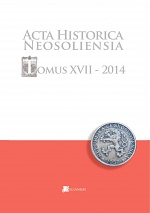Slovenská a česká spoločnosť v kontexte ľudských a občianskych práv a slobôd (1985 – 1991)
The Slovak and Czech society in the context of human and civil rights and freedoms (1985 – 1991)
Author(s): Jozef ŽatkuliakSubject(s): History
Published by: Filozofická fakulta Univerzity Mateja Bela
Keywords: The Slovak and Czech society; 1985 – 1991
Summary/Abstract: After the November 1989 come to attention the question of human and civil rights and liberties in the post-totalitarian system which in the previous regime – despite the social challenges – had been neglected. For the new democratic CSFR the results of the Helsinki process in the field of human rights and liberties were connected with the interest to become the part of the Trans-European integrative structures. These two phenomena expressed oneself during the setting up the Czechoslovak federal as well as Slovak and Czech national constitutions, the integral part of which should be the constitutional safeguard of the basic human and civil rights. During the creating the constitutional system of the post-communist Czechoslovakia combined with the Czech-Slovak negotiations about the composition of the new federal relations between the Slovak and Czech republics, these rights reflected themselves in the principles of democracy and humanism, of legally consistent state, as well as of the right of nations of self-determination. The first climax in establishing the democratic character of the new regime was the elections in June 1990. In that time also the Charter of elementary human rights and liberties has been approved.
Journal: Acta historica Neosoliensia
- Issue Year: 17/2014
- Issue No: 1
- Page Range: 182-210
- Page Count: 29
- Language: Slovak

